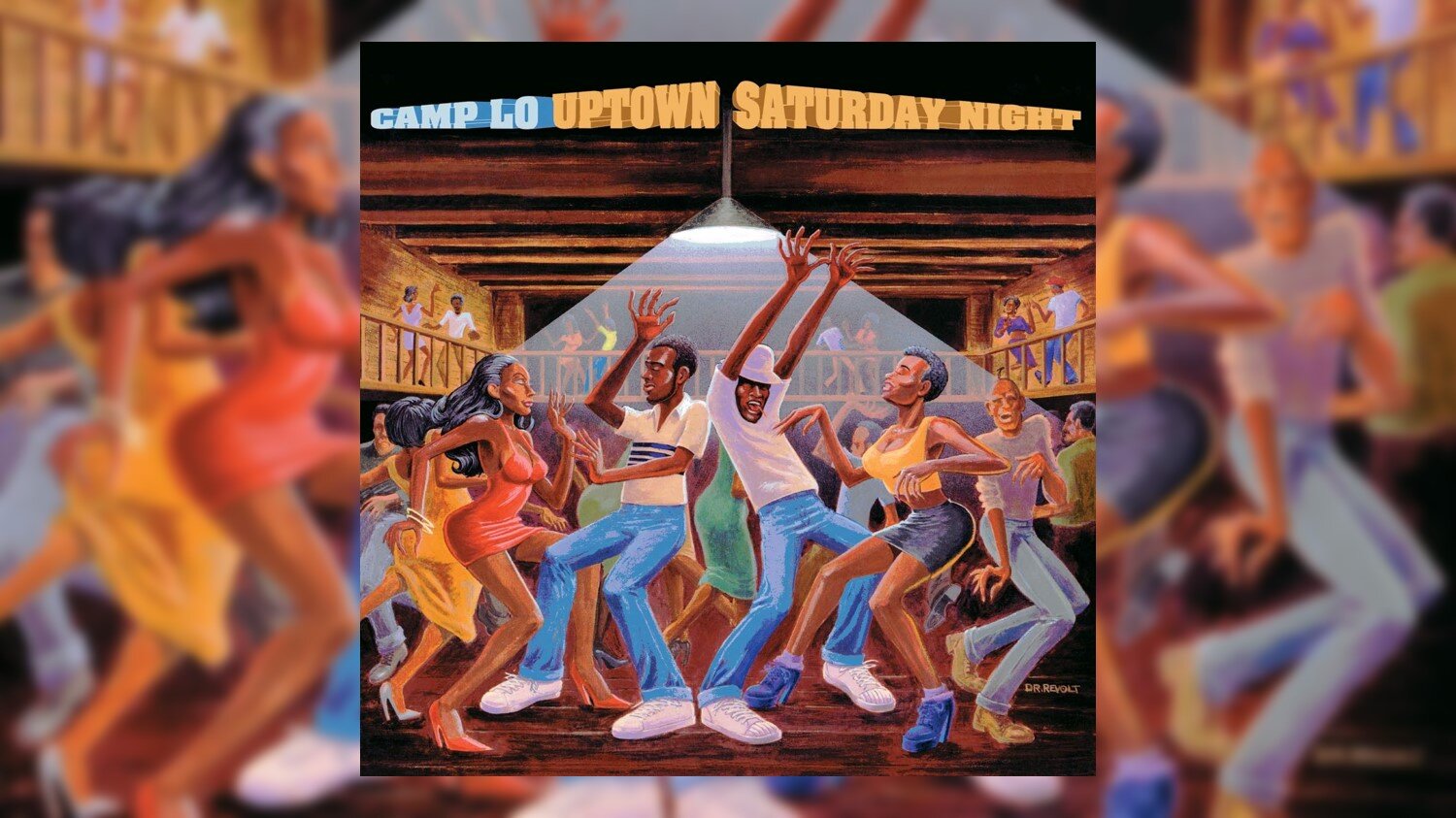Happy 25th Anniversary to Camp Lo’s debut album Uptown Saturday Night, originally released January 28, 1997.
1997 began with hip-hop fans still mourning the loss of Tupac Shakur, and before reaching the halfway mark of the calendar year, we found ourselves once again grieving the loss of another megastar, The Notorious B.I.G. The toll of losing two musical giants, especially within such a short timeframe, amidst the still ongoing East Coast vs. West Coast beef, sucked the oxygen out of the hip-hop world and created a palpable feeling of instability.
In between the deaths of the two legends, hip-hop did seem to catch a second wind and regain her footing as a duo from the cultural birthplace charged in to take us on a trip Uptown and remind us of happier days a few decades earlier.
Arguably the first great album of 1997 and a nod to the 1974 film of the same name that starred Sir Sidney Poitier, Harry Belafonte and Bill Cosby, Uptown Saturday Night saw Camp Lo come literally out of nowhere with a complete package of style and musical chemistry. At least for a moment, the group’s debut long player made us forget the trivialities of who was dissing who. And when listening to the album in retrospect, one can only assume that Sonny Cheeba and Geechi Suede inspired their contemporaries to step it up a notch or two.
From the first time we heard these cats on their lead single “Coolie High” they reminded us of everything cool we heard (or remembered) about the ‘70s. From the hairstyles and fashion we saw in our own photo albums, to the smooth slang we watched over and over in Blaxploitation films and syndicated rerun television shows. By the time “Luchini AKA This Is It” dropped, Camp Lo had convincingly made a case that they had nearly perfected a sound all their own, a sound that was undeniably soulful and broke from the New York City mold of screwface cynicism enough to be dubbed Northernplayalisticadillacmuzik.
If you were anything like me, you couldn’t get to the nearest record store fast enough. And once you pulled the CD or tape from the shelf, you found a rare album that was impressive, adorned with its dope album cover, which called to mind the beloved TV series Good Times, and payed tribute to the artist Ernie Barnes who created the immortal “Sugar Shack” piece that also graced the album cover of the king of cool Marvin Gaye’s 1976 album I Want You.
As if the music doesn’t speak well enough for itself, the group’s conceptual chemistry furthers Uptown’s distinctiveness with the appropriate song titles along the track listing, with joints named “Krystal Karrington,” “Sparkle,” and the ode to New York City’s first celebrity crime lord, “Nicky Barnes AKA It's Alright.” Indeed, the album fulfilled the promise of being a full blown masterpiece crafted by two swag gods.
The back-and-forth exchange between Sonny Cheeba and Geechi Suede’s rapid-fire but smooth delivery is perfectly complimented by Ski’s stellar production, which should make you smile, when you consider that he may have held back his best work from Jay Z, while he was helping construct his debut LP Reasonable Doubt (1996) which was released only months earlier.
The album’s fluidity almost makes it impossible to point out highs and lows, but the excitement of Digable Planets’ Butterfly on “Swing,” particularly with the dramatic video entrance, definitely helped solidify the album, along with the other veteran appearance of Trugoy the Dove (a.k.a. Dave) from De La Soul on “B-Side to Hollywood.”
“Black Connection” is a personal favorite of mine that I feel highlights the marriage of creativity among the trio of Cheeba, Suede and Ski, along with the final cut, “Sparkle (Midnight Mix),” which is merely the savory garnish over what had already proven to be a perfectly blended cocktail.
All in all, Uptown Saturday Night was exactly that: the good stiff drink we needed during a stress-filled year of grief and drama across the hip-hop landscape. Luckily for us, the content of the drink has aged like vintage whiskey for the distinguished ear ready to have a listen once again, 25 years later.
LISTEN:
Editor's note: this anniversary tribute was originally published in 2017 and has since been edited for accuracy and timeliness.

